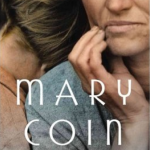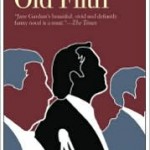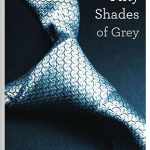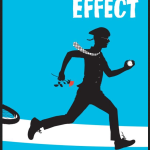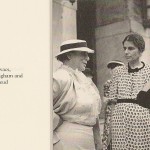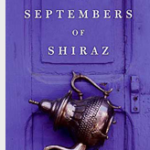Last Town On Earth by Thomas Mullen
Buy now on Amazon: The Last Town on Earth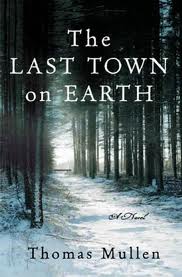
I was bothered by the title of this book since it isn’t really accurate. Perhaps it is meant to imply that the people felt as if they were in the last town on earth but that wasn’t really the case either. I kept expecting the story to somehow be something that it wasn’t.
It was a novel set in the northwest US in about 1917-1918 during WWI and the outbreak of the devastating flu epidemic. The location is Commonwealth, which is a town, formed around a mill but which had a special commune or kibbutz flavor since the owner of this factory organized the town to be a cooperative, paying fair wages, with one general store and a quasi town government, which would meet if there were issues to discuss.
The big issue is the deadly flu epidemic. The town, which is out of the mainstream and main roads, decides to isolate or quarantine itself from any outsiders by setting armed guards at the entryway into the town. The story evolves as two young men confront some soldiers who have strayed their way and desperately need to enter the town. The only way to prevent them from entering the town and possibly contaminating everyone with this dangerous flu is that these young guards might have to be to shoot them.
The author develops these characters as well as other town people so you know where they are coming from; you have a sense of their values and beliefs and appreciate their moral dilemmas when it comes life and death decisions, which they have to make. These were not everyday people as they each had their own journeys to this town but nevertheless you could put yourself in their shoes. This is the vehicle of the book.
Although the premise and unique qualities of the book did hold my interest, I did not find myself as invested in the characters and the stories as I frequently do with books that I immensely enjoy. I could put the book down and I can’t classify it as page turner (or a button pusher in the case of my Kindle.). The author did surprise me at times with twists in the plot and evoked emotions when people did not do well with disease that was descending upon them.
The book did get me to reflect on several issues.
One of them is the great fear that contagious diseases can instill in everyone including healthcare workers. Before we knew exactly how HIV was transmitted, I recall the fear in hospitals when patients with HIV were admitted and required procedures, which might spill blood. I published a study about the attitude of nurses in working with such patients. There was great fear and at time avoidance of patients by doctors and especially pregnant nurses. During my work in disaster psychiatry we had to think through the psychosocial problems we might encounter if an enemy might release a contagious agent or a harmful toxin somewhere in this country. What if a school were contaminated? Would we let the parents into the school or keep them out.? Would we not let family members visit contaminated people in the hospital if the illness was highly contagious. How close would we let staff get to the patients? We thought there should be lots of video communications. We also knew the fear and anxiety could be greater than the actual threat to life (although that could be problem also). During a saran gas attack by terrorists in the Tokyo subway a while back, 100 people were affected and a handful were killed but over 5000 people who were not affected appeared in panic state at local hospital overwhelming their ability to evaluate them. The importance of presenting clear information to the public in what is called risk communication has been studied by researchers. They have concluded that there needs to be a balance of truthful information put out through the media, but yet put out in a manner that would minimize tendency towards mass hysteria. The public has to trust the spokesperson i.e. Mayor Giuliani giving information about potential future terrorists during 9/11. There are special techniques which he used and experts in this field have studied.
The book also made me redouble my efforts to try be sure that we personally get the swine flu vaccine having already received the regular flu vaccine.
Another issue that I thought about was how Conscientious Objectors were treated during WWI. Apparently it was true that a certain number were actually treated harshly and beaten as depicted in the book. I know that during WW II COs did serve as medics as was the case in the VN war where I was a psychiatrist and had opportunity to evaluate a number of them who were either discharged or who clearly were assigned to noncombatant duty. I did not hear of any cases of physical abuse to them. The book touched idea of the anti-war movement in the WWI as well as in other wars or in the VN was which I was most familiar. One of the characters Rebecca who was shown to be suffragette as well as antiwar activist was a recurrent voice in the book.
When an author can stimulate thinking and discussion in a number of areas around the theme of the book he or she has made a worthwhile literary accomplishment.
My final conclusion is that in my opinion this is a good first novel but not a great one.
Category: FG - Fiction General | Tags: Conscientious Objectors, flu epidemic, Last Town on Earth, quarantine, Thomas Mullen, World War I Comment »

